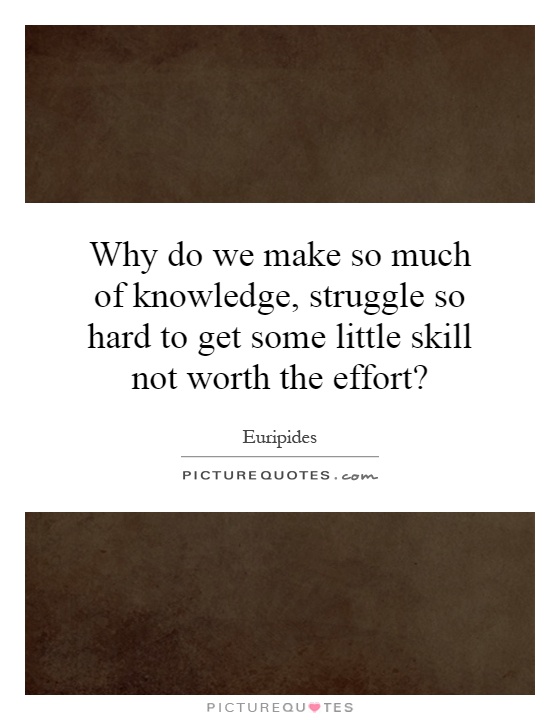Why do we make so much of knowledge, struggle so hard to get some little skill not worth the effort?

Why do we make so much of knowledge, struggle so hard to get some little skill not worth the effort?
In the context of Euripides, the question of why we place such a high value on knowledge and skills that may seem insignificant is a complex and multifaceted one. Euripides, a renowned Greek tragedian, often explored themes of human nature, morality, and the consequences of knowledge and power in his plays. In many of his works, characters grapple with the pursuit of knowledge and skills, often leading to tragic outcomes.One of Euripides' most famous plays, "Medea," tells the story of a woman who uses her knowledge of potions and poisons to seek revenge on her unfaithful husband. Medea's skills in witchcraft and manipulation ultimately lead to the deaths of her own children, highlighting the destructive power of knowledge when used for selfish or malicious purposes. In this context, the question of why we strive for knowledge and skills that may ultimately bring about our downfall becomes particularly poignant.
Euripides also explores the theme of knowledge and struggle in his play "The Bacchae," which tells the story of the god Dionysus and his followers. The play examines the consequences of resisting knowledge and the dangers of denying one's true nature. The character of Pentheus, who refuses to acknowledge the power of Dionysus, ultimately meets a tragic end as a result of his ignorance and arrogance. This serves as a cautionary tale about the importance of embracing knowledge and understanding one's place in the world.












 Friendship Quotes
Friendship Quotes Love Quotes
Love Quotes Life Quotes
Life Quotes Funny Quotes
Funny Quotes Motivational Quotes
Motivational Quotes Inspirational Quotes
Inspirational Quotes